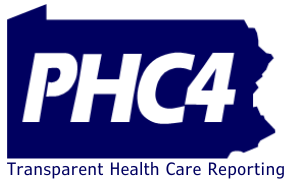Professor Lindsay Sabik, PhD, at the University of Pittsburgh School of Public Health, is a health economist and health services researcher focused on investigating how state and federal policies affect healthcare access, utilization, and health outcomes among low-income populations, with a particular focus on cancer care. As noted by Dr. Sabik, “Cancer is the second leading cause of death and one of the most expensive diseases in the United States, and timely access to high quality treatment is essential for minimizing cancer morbidity and mortality.”
Dr. Sabik explained, “Since 2010, both the federal and state health policy and healthcare delivery landscapes have undergone important changes. Recent policies and programs aimed to expand insurance coverage and reform payment policy while improving healthcare delivery, quality care access, and, ultimately, patient outcomes. Evidence on the effects of these changes is essential for informing ongoing debates over how to increase access and decrease disparities, and to understand the overall downstream effects of these policies on patterns of cancer care delivery.”
Dr. Sabik and her research team utilized Pennsylvania Health Care Cost Containment Council (PHC4) inpatient discharge and ambulatory/outpatient procedure data linked to records from the Pennsylvania Department of Health’s Pennsylvania Cancer Registry for a research study entitled, “Impacts of Recent Payment, Coverage, and Systems Changes on Access to and Quality of Cancer Care.” Through these linked datasets, Dr. Sabik’s research team was able to confirm cancer cases in the state and track patterns of health care.
Dr. Sabik shared insights from the study stating, “The Affordable Care Act (ACA) has reduced rates of uninsurance and set standards for coverage that have improved access to care along many dimensions. For our analysis, we focused on all non-federal short term general hospitals in Pennsylvania from 2010 through 2019. For patients in Pennsylvania aged 26–64 who received surgery for prostate, lung, or colorectal cancer, we compared changes in the likelihood of treatment at National Cancer Institute Comprehensive Cancer Centers (NCI-CCCs) after ACA implementation. Comparing patients in counties with high rates of uninsurance pre-ACA to those in areas with lower baseline uninsurance, we found a differential increase in surgery at NCI-CCCs after the ACA. Our results indicate that insurance expansions under the ACA were associated with increased access to NCI-CCCs in Pennsylvania.1“
Explaining further, Dr. Sabik noted, “We also observed a statistically significant increase in guideline-concordant care for colon cancer post-ACA among patients who were non-White, resided in rural areas, or lived in the most deprived neighborhoods (based on Area Deprivation Index). Our findings suggest the ACA is associated with an increase in the quality of colon cancer care for underserved groups, indicating that availability of comprehensive insurance coverage is important for reducing disparities in cancer care and outcomes.2”
Dr. Sabik emphasized she is looking forward to using PHC4 data in future projects as her team continues to develop new questions related to health services research and policy that can be addressed through PHC4 data. She stated PHC4 data is among the timeliest population-based administrative datasets available, with quality quarterly data released within nine months.
1 Sabik LM, Kwon Y, Drake C, Yabes J, Bhattacharya M, Sun Z, Bradley CJ, Jacobs BL. Impact of the Affordable Care Act on access to accredited facilities for cancer treatment. Health Serv Res. 2024 May 2. doi: 10.1111/1475-6773.14315. Epub ahead of print. PMID: 38698670.
2 Kudaravalli S, Ober N, Sun Z, Bhattacharya M, Jacobs B, Sabik L; Abstract PR007: Impact of the Affordable Care Act on receipt of guideline-concordant care for colon cancer. Cancer Epidemiol Biomarkers Prev. 1 September 2024; 33 (9_Supplement): PR007.
Return to the Case Studies Page: VIEW ALL CASE STUDIES


